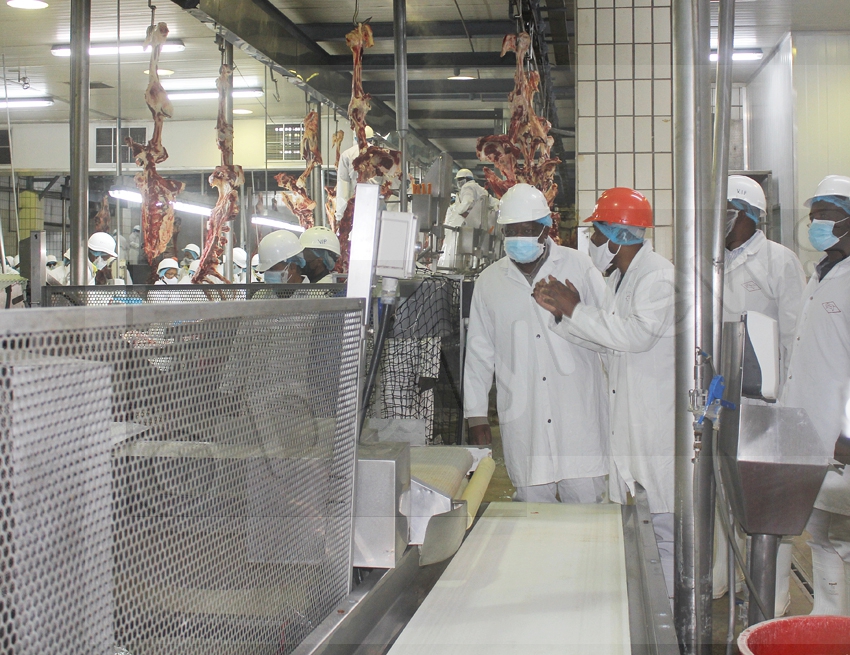Hikuama tables motion on provision of water
24 Jul 2022
Ngami MP, Mr Kainangura Hikuama on Friday tabled a motion requesting government to consider providing clean drinking water to rural communities in farming areas and ungazetted settlements.
The motion read “that this Honourable House requests government to consider providing clean drinking water to rural communities in farm lands, ungazetted settlements and cattle posts because drinking water and sanitation are a pre-requisite for achieving a minimum standard of health and to undertake productive activities, and that it is also in line with the United Nations’ Sustainable Development Goal number 6 of providing safe and affordable drinking water for all by 2030.”
Tabling the motion, Mr Hikuama said the intention was to remove legal provisions and policies that disadvantaged rural communities as far as provision of clean drinking water was concerned. He noted that although the population was divided into both urban and rural, the legal provisions only catered for the former.
“Botswana’s population is settling in two types of settlements, that is rural settlement and urban settlement, but our laws and policies for provision of safe and portable water cover only the population in urban and gazetted villages at the exclusion of those in farmlands, ungazetted settlements and cattle posts,” he said.
He said the motion was a reactionary action towards existing legal instruments, which did not provide for availing of clean and portable water in rural areas. He said it was unacceptable for such people to be denied access to water on the basis of legal provisions.
“It is unacceptable for a democracy to block access or provision of safe and portable water to its people through legislation and policy. It would give sense if consideration for access and provision of portable water to people is on the basis of resource availability and capacity not law because access to water and sanitation are recognised at the United Nations as human rights,” he argued.
Mr Hikuama further submitted that most people who lived in rural settlements and ungazetted areas were engaged in farming and therefore contributing towards poverty eradication. He said such production areas needed the necessary support from government in order to effectively address challenges such as unemployment, especially among the youth.
Additionally, he said providing such people with portable water would go a long way in enhancing economic activity in those areas and reducing the number of destitute people as well as the rate of rural-urban migration.
Minister of Lands and Water Affairs, Dr Kefentse Mzwinila said he opposed the motion, stating that even though his ministry had a responsibility and desire to provide clean water to all Batswana, it was constrained by legal provisions and resource availability.
He argued that the motion was against the Water Works Act which made provisions for availing water only to recognised settlements. “Provision of water to unrecognised settlements and farm lands would mean taking or providing infrastructure developments beyond the scope of the current planning areas,” he noted.
He also said the motion was not aligned with the United Nations Sustainable Development Goals since it advocated for something that was not sustainable. He said it was imperative for all countries to maximise resources to provide the population with sustainable services in a fair and equitable way.
“In Botswana, the Sustainable Development Goals are implemented within the existing legal and policy instruments, in particular, the Water Works Act and the National Settlement Policy of 2004.
The National Settlement Policy states that basic infrastructure and services shall be provided to all settlements of a minimum population of 500 people, and for rural area dwellers, settlements with a population of 250 to 499 people,” he said.
Dr Mzwinila said such basic infrastructure and services included portable water, primary schools and a health post. He argued that the policy encouraged people to settle in areas where they could be provided with such basic infrastructure in a cost effective manner to ensure sustainability.
He said since there were no plans to accede to the request, people who lived in ungazetted areas could access water through various programmes offered by the Ministry of Agriculture. ends
Source : BOPA
Author : Kehumile Moekejo
Location : KANYE
Event : parliament
Date : 24 Jul 2022



